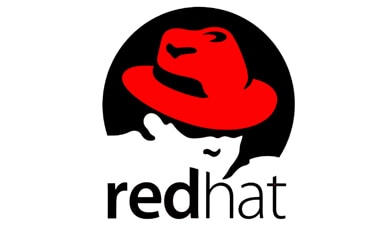
Introduce Ansible
Describe Ansible concepts and install Red Hat Ansible Engine.
Deploy Ansible
Configure Ansible to manage hosts and run ad hoc Ansible commands.
Implement playbooks
Write a simple Ansible Playbook and run it to automate tasks on multiple managed hosts.
Manage variables and facts
Write playbooks that use variables to simplify management of the playbook and facts to reference information about managed hosts.
Implement task control
Manage task control, handlers, and task errors in Ansible Playbooks.
Deploy files to managed hosts
Deploy, manage, and adjust files on hosts managed by Ansible.
Manage large projects
Write playbooks that are optimized for larger, more complex projects.
Simplify playbooks with roles
Use Ansible roles to develop playbooks more quickly and to reuse Ansible code.
Troubleshoot Ansible
Troubleshoot playbooks and managed hosts.
Automate Linux administration tasks
Automate common Linux system administration tasks with Ansible.
Note: Course outline is subject to change with technology advances and as the nature of the underlying job evolves. For questions or confirmation on a specific objective or topic, contact one of our training specialists.
This course and exam are geared toward Linux system administrators, DevOps engineers, infrastructure automation engineers, and systems design engineers who are responsible for these tasks:
- Automating configuration management
- Ensuring consistent and repeatable application deployment
- Provisioning and deployment of development, testing, and production servers
- Integrating with DevOps continuous integration/continuous delivery workflows
Impact on the organization
IT automation is key to managing large numbers of systems and applications efficiently and consistently at scale. This offering develops and tests the skills needed to efficiently operate and more easily scale the organization's dynamic IT infrastructure, accelerate application time to value, and rapidly adapt and implement needed innovation through DevOps practices.
Red Hat has created this course in a way intended to benefit our customers, but each company and infrastructure is unique, and actual results or benefits may vary.
Impact on the individual
As a result of taking this course and exam, you should be able to use Ansible for the purpose of automation, configuration, and management. You should be able to validate these skills:
- Install and configure Ansible or Red Hat Ansible Engine on a control node.
- Create and manage inventories of managed hosts, as well as prepare them for Ansible automation.
- Run individual ad hoc automation tasks from the command line.
- Write Ansible Playbooks to consistently automate multiple tasks and apply them to managed hosts.
- Parameterize playbooks using variables and facts, and protect sensitive data with Ansible Vault.
- Write and reuse existing Ansible roles to simplify playbook creation and reuse code.
- Automate common Red Hat Enterprise Linux system administration tasks using Ansible.
